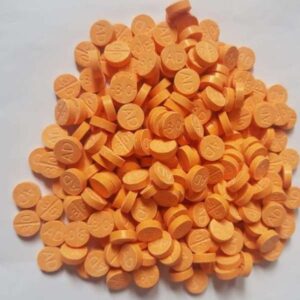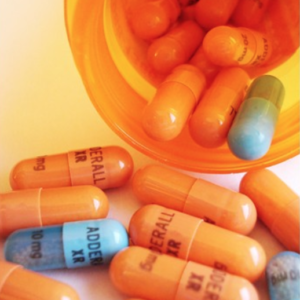Currently Empty: $0.00

Adderall, a widely prescribed medication, is primarily used to treat attention deficit hyperactivity disorder (ADHD) and narcolepsy. Composed of a combination of amphetamine salts, it helps improve focus, attention, and impulse control. However, there are discussions surrounding the misuse of Adderall, including the question: “Can you inject Adderall?” This post will explore this question in detail, highlighting the serious risks and dangers associated with this practice.
-
 Buy Adderall 30mg Online$200.00 – $1,500.00
Buy Adderall 30mg Online$200.00 – $1,500.00 -
 Buy Adderall Blue Pill online$200.00 – $1,000.00
Buy Adderall Blue Pill online$200.00 – $1,000.00 -
 Adderall$400.00 – $1,800.00
Adderall$400.00 – $1,800.00
What Is Adderall?
Adderall is a central nervous system (CNS) stimulant that contains amphetamine and dextroamphetamine. It works by increasing the levels of certain neurotransmitters in the brain, specifically dopamine and norepinephrine. These neurotransmitters play critical roles in regulating attention, behavior, and mood.
Dosage Forms
Adderall is available in both immediate-release and extended-release formulations. The immediate-release form typically starts to work within 30 minutes and lasts about 4 to 6 hours, while the extended-release form is designed to provide longer-lasting effects, usually lasting about 10 to 12 hours.
Common Uses
Adderall is primarily prescribed for:
| Condition | Description |
|---|---|
| ADHD | Helps manage symptoms such as inattention, hyperactivity, and impulsivity. |
| Narcolepsy | Assists in preventing excessive daytime sleepiness. |
Can You Inject Adderall?
While it is technically possible to inject Adderall, it is highly dangerous and strongly discouraged. Here’s why injecting Adderall is not safe:
Formulation Issues
Adderall tablets are specifically designed for oral consumption. They contain binders, fillers, and other inactive ingredients that are not intended for injection. These substances can lead to severe health complications when introduced directly into the bloodstream.
Health Risks of Injecting Adderall
- Infections:
Injecting any substance not meant for injection significantly increases the risk of infections at the injection site and potentially in the bloodstream. - Damage to Blood Vessels:
Non-sterile substances can harm blood vessels, leading to complications like abscesses or blood clots. In some cases, these complications may necessitate surgical intervention. - Pulmonary Embolism:
Injecting Adderall may cause particles from the tablet to enter the lungs, resulting in potentially life-threatening conditions such as pulmonary embolism, where blood vessels in the lungs become blocked. - Severe Cardiovascular Effects:
The introduction of stimulants via injection can trigger sudden cardiovascular problems, including high blood pressure, rapid heart rate, and an increased risk of heart attack or stroke. These effects can be particularly dangerous for individuals with pre-existing heart conditions. - Risk of Overdose:
Injecting Adderall can result in a rapid and unpredictable increase in drug levels in the bloodstream, significantly raising the risk of overdose. Symptoms of an overdose include agitation, hallucinations, rapid heartbeat, fever, muscle tremors, and seizures. In severe cases, an overdose can lead to coma or death.
Addiction and Dependence
Misusing Adderall by injection substantially heightens the risk of addiction and dependence. The rapid onset of effects can reinforce compulsive drug-seeking behavior. Individuals may find themselves needing increasingly higher doses to achieve the same effects, which can further lead to a cycle of misuse.
Why Some Might Consider Injecting Adderall
Despite the well-documented dangers, some individuals may consider injecting Adderall for various reasons:
| Reason | Description |
|---|---|
| Seeking Enhanced Effects | Some believe that injecting Adderall provides a more intense or immediate effect compared to oral consumption. |
| Misuse and Abuse | Individuals with substance use disorders might misuse Adderall to experience a more potent stimulant effect. |
Alternatives and Safe Use of Adderall
If you are prescribed Adderall for ADHD or narcolepsy, it’s crucial to adhere to your healthcare provider’s directions. Here are some guidelines for safe use:
- Follow Prescription Instructions:
Take Adderall exactly as prescribed. Avoid altering the form of the medication or using it in any unintended manner, such as crushing and injecting it. - Discuss Concerns with Your Doctor:
If you have concerns about the effectiveness of Adderall or experience side effects, consult your healthcare provider. They can adjust your dosage or explore alternative treatments. - Avoid Misuse:
Do not use Adderall without a prescription or misuse it in any form. Misuse can lead to serious health risks and legal consequences, including criminal charges. - Seek Help for Substance Use:
If you or someone you know is struggling with substance misuse or addiction, reach out to a healthcare provider or addiction specialist. Resources are available for support and treatment, including counseling, support groups, and rehabilitation programs.
Recognizing Signs of Misuse
It’s important to be aware of the signs that someone may be misusing Adderall or other stimulants. Some red flags include:
| Signs of Misuse | Description |
|---|---|
| Increased Tolerance | Needing higher doses to achieve the same effects. |
| Withdrawal Symptoms | Experiencing anxiety, irritability, or fatigue when not using the drug. |
| Changes in Behavior | Exhibiting unusual energy levels or mood swings. |
| Neglecting Responsibilities | Ignoring work, school, or personal obligations due to drug use. |
Conclusion
Injecting Adderall is extremely dangerous and should never be attempted. The medication is intended solely for oral use, and misuse through injection carries significant health risks, including infections, cardiovascular problems, and overdose. Always use medications as prescribed by a healthcare professional, and avoid any form of misuse. If you have concerns about your medication or substance use, seek guidance from a medical professional. Educating yourself about the risks associated with misuse is the first step in making informed decisions about your health and well-being


